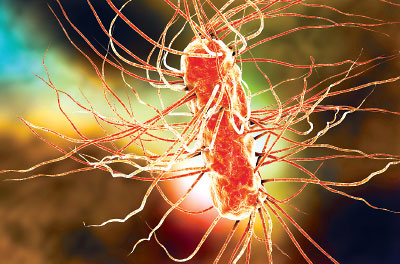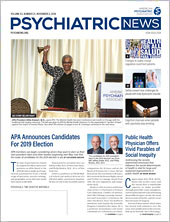A recent study from a research team in Australia reports that fluoxetine has an unanticipated effect on bacteria. Specifically, exposure to high levels of fluoxetine can make bacteria resistant to antibiotics.
According to the study authors, these findings represent the first demonstration of a nonantibiotic medication promoting antibiotic resistance in bacteria. Experts caution it is not yet time to raise a major public health alarm or switch patients to a different antidepressant.
For one, the experiments conducted by Jianhua Guo, Ph.D., and his colleagues at the University of Queensland in Brisbane were done under ideal laboratory conditions. It is not yet known whether bacteria in the natural environment or the human gut would respond to fluoxetine in the same way. Second, the analysis tested fluoxetine only on Escherichia coli (E. coli), which is a major pathogen, but not as prevalent as bacteria that cause pneumonia or staph infections.
Finally, multi-antibiotic resistance was evident only at the highest levels of fluoxetine exposure—100 mg/liter. By comparison, average blood concentration of fluoxetine in humans is less than 1 mg/liter.
Still, given that fluoxetine is one of the most widely prescribed antidepressants in the world and can accumulate in groundwater or other runoff areas, this study reinforces the importance of the proper dispensing and disposing of this medication.
Guo and colleagues induced antibiotic resistance by growing E. coli in liquid cultures with varying amounts of fluoxetine (0.5, 5, 50, or 100 mg/liter) for 30 days. Every few days, they took small bacterial samples and spread them on petri dishes containing the common antibiotics chloramphenicol, amoxicillin, or tetracyclines.
They found that at the 100 mg/liter dose, bacteria that were resistant to chloramphenicol or tetracycline emerged after just one day; it took 30 days at the highest dose for amoxicillin-resistant bacteria to emerge. These antibiotic-resistant strains were then grown in their own culture and were then exposed to other antibiotics (such as ampicillin, cephalexin, kanamycin, levofloxacin, and norfloxacin), revealing that many E. coli had developed multidrug resistance.
Guo and colleagues next analyzed the DNA of the multidrug-resistant strains to identify what changes had been made. They found that under normal conditions, fluoxetine stresses bacterial cells, leading to the production of free radicals that cause genetic mutations. These mutations are normally harmful, but some bacteria were able to adapt by overexpressing proteins that pump out these harmful free radicals from bacteria. These same protein pumps are responsible for antibiotic resistance.
This study was published in the journal Environmental International and supported by the Australian Research Council. ■
“Antidepressant Fluoxetine Induces Multiple Antibiotics Resistance in Escherichia Coli Via ROS-Mediated Mutagenesis” can be accessed
here.

